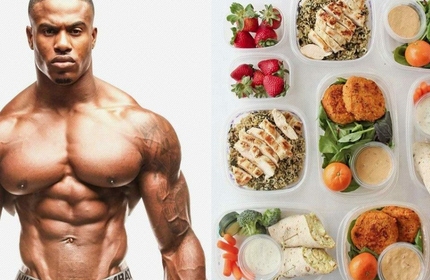 Boxing, both amateur and professional, requires a high level of energy and a high rate of muscle contraction. A round lasts about 3 minutes, but it will seem small only to someone who has never practiced boxing. After 3 minutes of a fight a person is as tired as after a moderate workout, so endurance plays an important role for boxers. In addition, flexibility and agility are important in boxing.
A properly formulated diet for boxers can significantly help with athletic performance, and conversely, the wrong diet can significantly worsen results. The right diet for boxers creates optimal conditions in the body to mobilize energy and also allows you to stay in good physical shape throughout the sports activities. The diet for boxers should not cause an increase in fat mass, which decreases speed and endurance during the fight.
Boxing, both amateur and professional, requires a high level of energy and a high rate of muscle contraction. A round lasts about 3 minutes, but it will seem small only to someone who has never practiced boxing. After 3 minutes of a fight a person is as tired as after a moderate workout, so endurance plays an important role for boxers. In addition, flexibility and agility are important in boxing.
A properly formulated diet for boxers can significantly help with athletic performance, and conversely, the wrong diet can significantly worsen results. The right diet for boxers creates optimal conditions in the body to mobilize energy and also allows you to stay in good physical shape throughout the sports activities. The diet for boxers should not cause an increase in fat mass, which decreases speed and endurance during the fight.
Boxers should follow a medium- to high-carbohydrate diet to replenish energy-glycogen stores and quickly restore the ATP system during periods of vigorous training, competition and strength training. The American and Canadian Dietetics Associations recommend that carbohydrates make up about 55% of the diet's calories and about 25% due to fat.[1] Note that the percentages are for calories, not weight. To maintain muscle mass, the proportion of protein may be increased to 35%, at the expense of lower fat intake.
During intensive training in preparation for performances, the diet should contain about 55% of calories from carbohydrates and up to 40% from protein, with the remaining share falling on fats. The main goal of the training diet is to ensure adequate recovery of energy reserves and tissues, without increasing fat mass, thus maintaining high levels of physical performance at unchanged weight.
Studies show that boxers should take in 1.6-1.8 g of protein per kilogram of body weight each day.[2] Increasing the proportion of protein provides faster muscle recovery and also represents an additional source of energy for the body. When there is a lack of protein in the diet, the body begins to use its own proteins, primarily muscle proteins.
Take in 10-15 percent fat, of the total calories in your diet. Fats should be of plant origin, fish oil is also useful. Some boxers try to reduce their fat intake as much as possible, but this should not be allowed, because fats are important for the body. If they are lacking, health problems can arise and athletic performance can deteriorate.
Do not forget to drink enough fluids - up to 3 liters per day (total amount). Do not increase or decrease your body weight before competitions.
Nutrition of boxers outside the active training season
Outside of the training season, boxers should address their deficiencies - if you need to increase muscle mass or reduce fat deposits. Do not try to make quick progress, this disturbs the bio-balance and requires a long adaptation period. During this period you can reduce the protein intake, as well as reduce the total caloric content of the diet by 10-15%.
The recommendations of this section on the diet for boxers may vary depending on the predominance of one or another type of muscle fiber in the body, gender, age and current physical condition. You need to adjust the diet yourself by listening to your body.
Increase your caloric intake by 10-20% with protein and slow carbohydrates.
Take about 20g of fast protein and 30-40g of carbohydrates at least 1 hour before working out.
Take 1-2 extra servings of a protein shake between meals.
Drink sugary drinks during your workout
Immediately after your workout, take an additional 20 g of protein and eat a hearty meal 30 minutes later.
Try to take in more caloric foods, but avoid fast food and fatty foods.
Eat every 3 to 4 hours so that you can maintain a constant anabolic state in your body.
Avoid sweets.